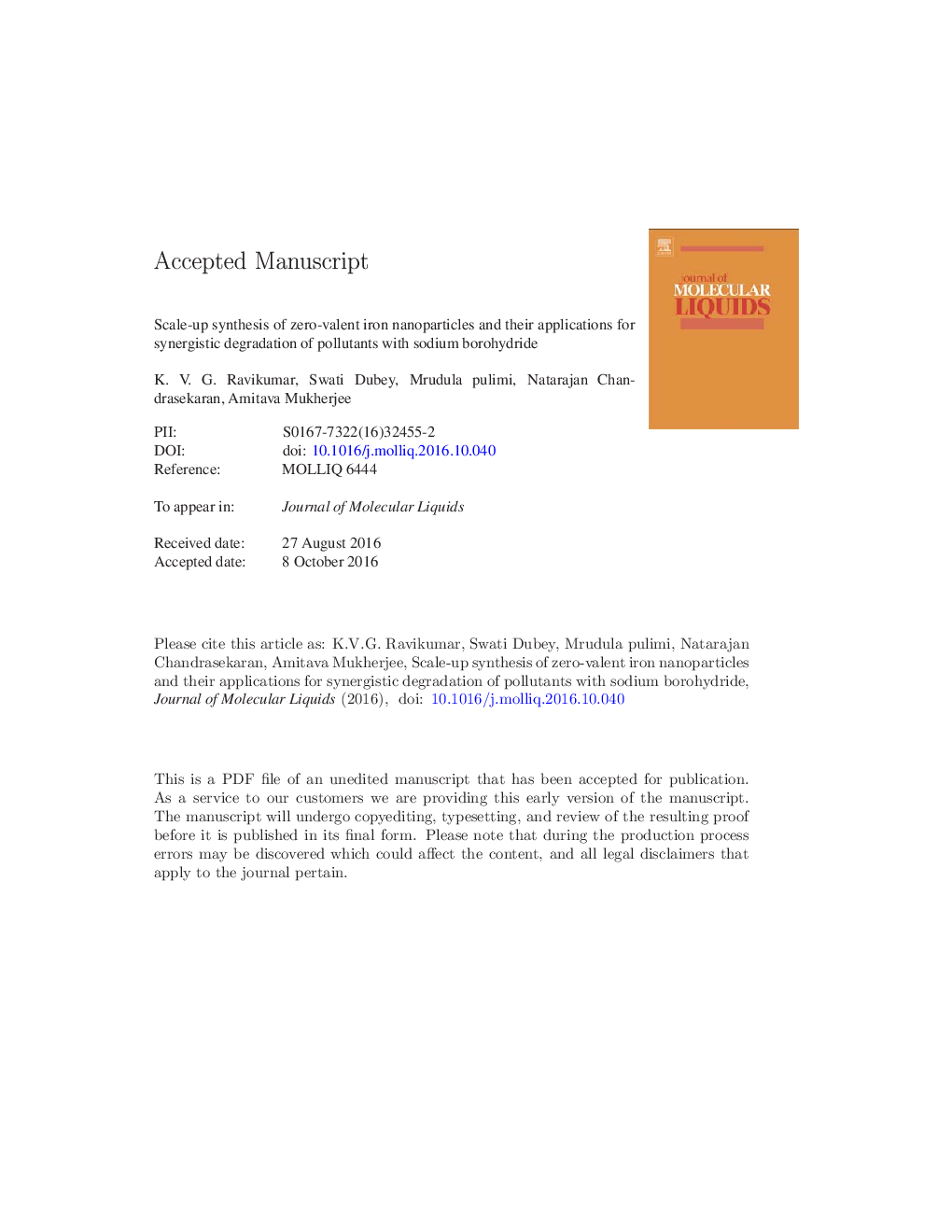| Article ID | Journal | Published Year | Pages | File Type |
|---|---|---|---|---|
| 5409371 | Journal of Molecular Liquids | 2016 | 48 Pages |
Abstract
The scale-up synthesis of nZVI (zero-valent iron nanoparticles) was optimized by response surface modeling (RSM). The synthesized nZVI was employed for synergistic degradation of metronidazole (MNZ) or methyl orange (MO) in the presence of sodium borohydride (NaBH4). Key parameters such as initial MNZ or MO concentration, nZVI concentration, and NaBH4 concentration for MNZ or MO removal process was optimized using central composite design (CCD). Under the optimized conditions (nZVI concentration: 150 mg/L; NaBH4:0.1 M; interaction time: 25 min for MNZ and 30 min for MO; and MNZ or MO initial concentration: 40 mg/L), the removal was synergistically increased to 100% (MNZ) and 98.07 ± 1.1% (MO). When nZVI was applied without NaBH4, the removal of MNZ and MO were 50.62 ± 0.28 and 43.72 ± 0.29%, respectively. In the presence of NaBH4 alone, the removal of MNZ or MO was 6.5 ± 1.1% and 4.2 ± 0.7%, respectively. Addition of NaBH4 was found to enhance the remediation ability of nZVI. The MNZ or MO degradation followed pseudo-first-order kinetics. The degradation mechanism was studied by UV-visible spectroscopy, XRD, SEM-EDX, FT-IR, and BET analyses. The applicability of the process was tested with MNZ-spiked or MO-spiked lake water and ground water samples.
Keywords
Related Topics
Physical Sciences and Engineering
Chemistry
Physical and Theoretical Chemistry
Authors
K.V.G. Ravikumar, Swati Dubey, Mrudula pulimi, Natarajan Chandrasekaran, Amitava Mukherjee,
